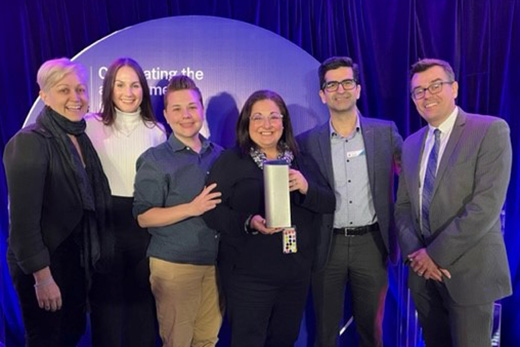Taking on drug and alcohol treatment is a huge step. However, staying in and benefiting from treatment can easily be derailed by impaired brain function. Our Alcohol and Drug Cognitive Enhancement (ACE) program is tackling this challenge, with impressive results.
Approximately 50% of people seeking alcohol and drug treatment are affected by impaired brain function (or cognitive impairment).1 It is a key risk factor that can impact the success of treatment. Yet, until recently, no validated cognitive intervention existed for people with substance use issues, and access to neuropsychological assessment options are limited.
The ACE program has been co-designed by the Agency for Clinical Innovation’s (ACI) Alcohol and Drug Network with clinicians and consumers. It provides clinicians with simple tools to screen for, assess and respond to cognitive impairment for the first time. This NSW Health Award-winning program can help clinicians improve a client’s brain function and target treatment to match a client’s capacity. This helps ensure people engage with, and stay in, treatment.
ACE-ing it!
Since its launch last year, the ACE program resources have been downloaded more than 3,400 times, and the program is being implemented in multiple jurisdictions. Illawarra-Shoalhaven and Western NSW Local Health District are rolling it out across their services, as well as many residential services.
Sarah Etter, Clinical Director of the Network of Alcohol and other Drugs Agencies (NADA), has been involved in developing the program with the ACI.
The ACE program improves a person’s ability to plan, organise, set goals, solve problems, make effective decisions and regulate emotions.
“These skills are crucial to implement positive behaviour change, which is the primary focus of alcohol and drug treatment,” says Sarah. “The development and roll-out of the ACE program are great examples of how all projects should be undertaken. In particular, how the government and non-government sectors can collaborate and achieve great outcomes for people accessing alcohol and other drug treatment.”

ACI staff and stakeholders at the NSW Health Awards, where the ACE program won the Keeping People Healthy Award. L-R: Suzie Hudson (Ministry of Health); Skye Russell (ACI); Sarah Etter (NADA); and Antoinette Sedwell, Pooria Sarrami and Dr Jean-Frederic Levesque (ACI).
Improving patient outcomes and clinical experiences
Since 2016, the ACE program has been piloted and trialled at 15 sites in NSW with more than 520 people. Participants showed an increase in treatment completion rates, which almost doubled from 34% to 63%. Those who completed the full 12-session program experienced a large reduction in cognitive impairment, from 53% before the program to 27% afterwards.
Marion Pozniak, a counsellor at Jarrah House (drug and alcohol service), said the ACE program helped their clients by teaching them about the cognitive difficulties some people can experience in their daily lives, due to substance use or traumatic brain injury. The program also gave them the language and tools to address these challenges during treatment.
It was profoundly rewarding for staff and clients to witness the dramatic improvement in concentration, memory recall and calmness that clients in the program experienced.
Benefits for the health system and community
“Estimates of the health, social and economic impact of alcohol and drug misuse in Australia run into the billions of dollars,” says Antoinette Sedwell, the ACI’s Alcohol and Drug Network Manager, who led the development and roll-out of the ACE program.
“The ACE program has demonstrated that we can significantly improve treatment completion rates by taking an innovative and evidence-based approach to the challenges people face when they seek treatment.”
“This can improve outcomes, reduce readmission rates, improve access to treatment and lead to better productivity and value for money – benefiting individuals, the health system and our community.”
For Mark, a program participant at Calvary Riverina (drug and alcohol service), the program was life-changing. “The ACE program helped me change my thought patterns and lifestyle. It helped me realise that these [strategies] can be a part of my life so simply. It was a life-changing experience – now, how I abide by rules and how I think; it is easier for me to go to the positive rather than the negative,” explains Mark.
Watch to learn more about the NSW Health Award winning ACE program.
The program was recently recognised in the NSW Health Awards, winning the Keeping People Healthy category. "To receive such a prestigious award for the network’s very first innovation project has been an honour which is shared by the network, the ACI and all our partners and stakeholders," says Antoinette.
Learn more about the ACE program
Subscribe to stay informed about healthcare innovations
1 Copersino ML, Fals-Stewart W, Fitzmaurice G, Schretlen DJ, Sokoloff J, Weiss RD. Rapid cognitive screening of patients with substance use disorders. Exp Clin Psychopharmacol. 2009 Oct;17(5):337-44. doi: 10.1037/a0017260